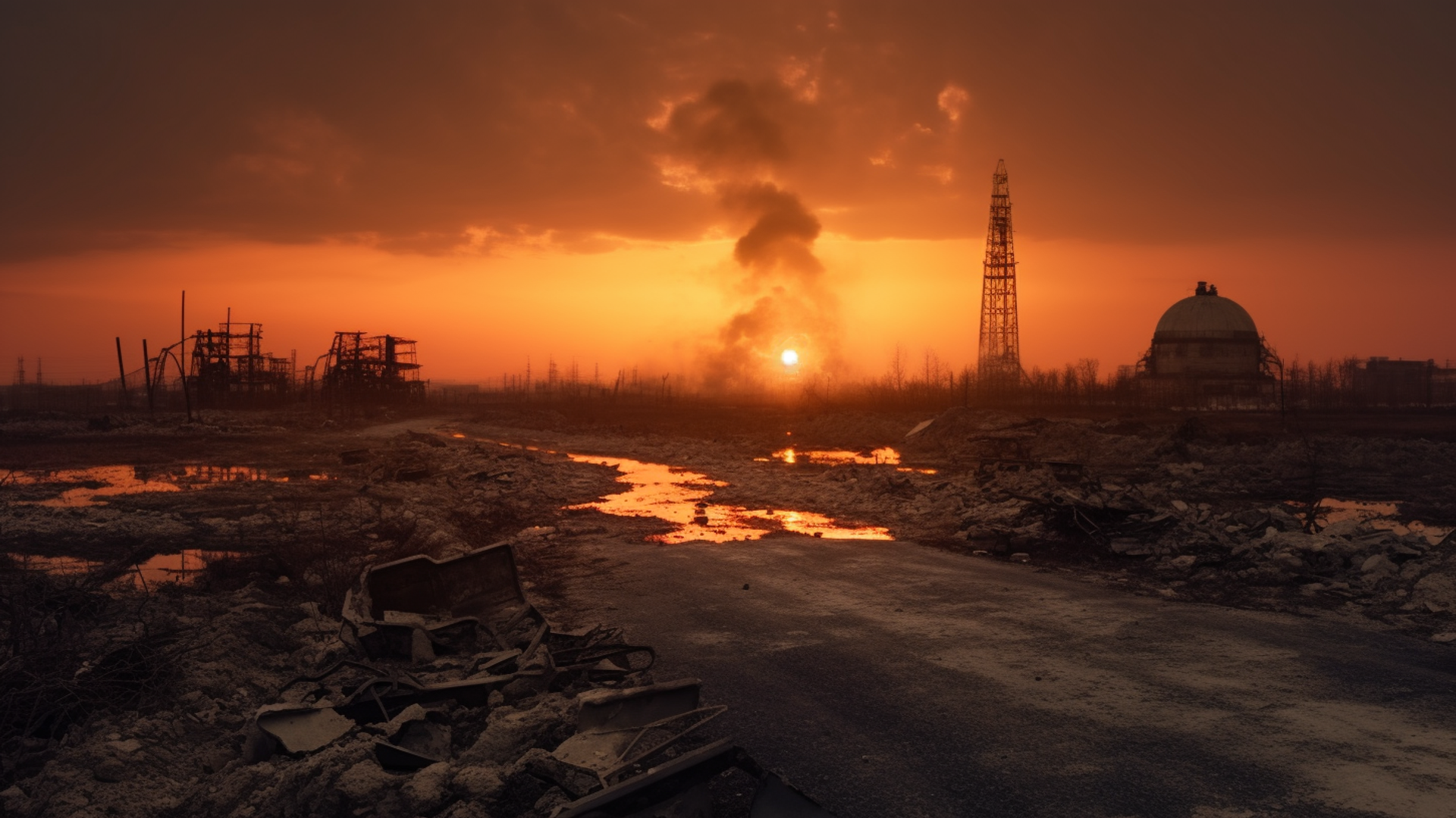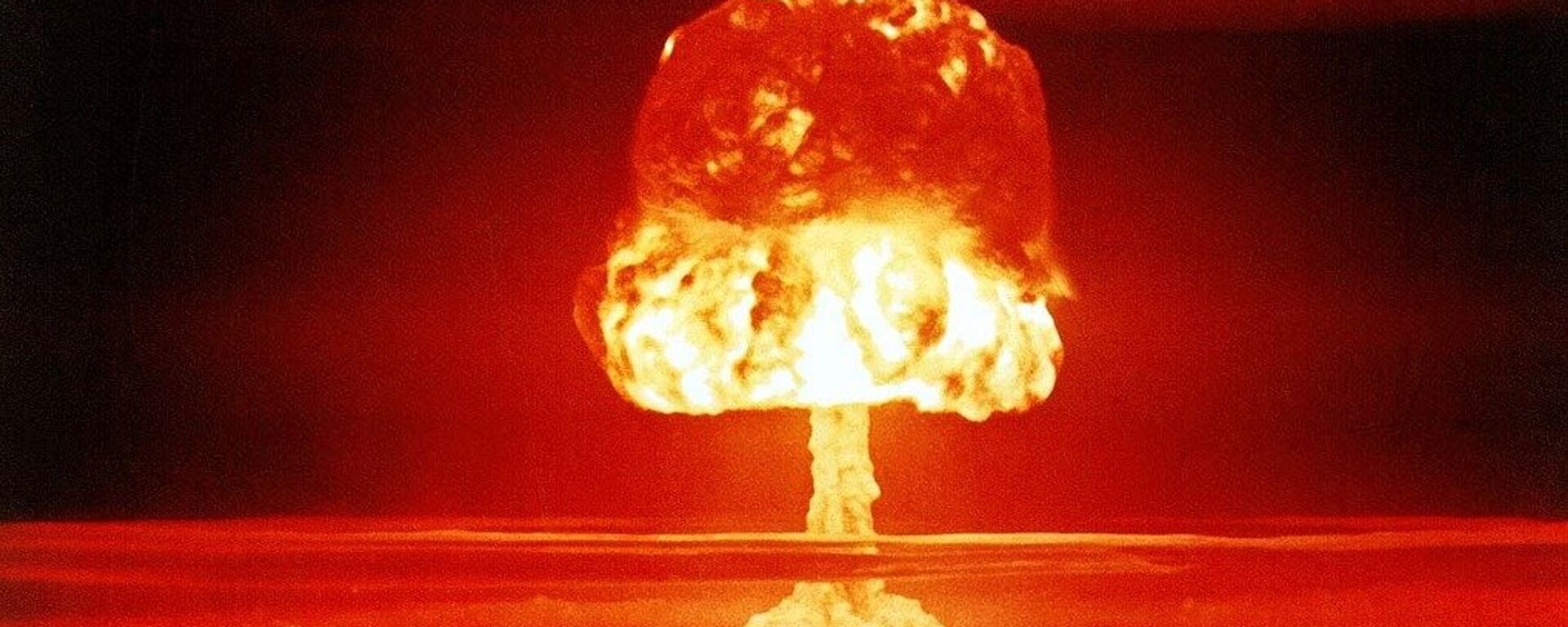https://sputnikglobe.com/20230803/scientists-to-world-leaders-eliminate-your-nukes-before-they-eliminate-us-1112377918.html
Scientists to World Leaders: Eliminate Your Nukes 'Before They Eliminate Us'
Scientists to World Leaders: Eliminate Your Nukes 'Before They Eliminate Us'
Sputnik International
More than 100 Medical Journals collaborated to release an editorial, calling for the elimination of nuclear weapons before a nuclear catastrophe occurs
2023-08-03T22:32+0000
2023-08-03T22:32+0000
2023-08-03T22:32+0000
world
bulletin of the atomic scientists
new england journal of medicine
lancet
russia
ukraine
china
europe
nuclear weapons
nuclear
https://cdn1.img.sputnikglobe.com/img/07e7/08/03/1112378043_5:0:1456:816_1920x0_80_0_0_36edddf0d9d4d881dd8e4ff10c807ee6.png
More than 100 medical journals issued a joint call in a rare show of unity on Thursday, calling for the urgent elimination of nuclear weapons while calling the threat of nuclear catastrophe “great and growing.”The editorial, simultaneously published in major medical journals that typically compete for exclusives, including National Medical Journal, Lancet, JAMA, and New England Journal of Medicine, among others, calls on the “nuclear-armed states” to “eliminate their nuclear arsenals before they eliminate us.”The call comes during growing tensions between Russia, China and the West as well as multiple missile tests by North Korea.Titled “Reducing the Risks of Nuclear War,” the editorial warned that even “a ‘limited’ nuclear war involving only 250 of the 13,000 nuclear weapons in the world could kill 120 million people outright and cause global climate disruption leading to a nuclear famine, putting two billion people at risk.” It adds that a large-scale war between the United States and Russia “could kill 200 million people” shortly after it starts while ushering in a nuclear winter that could kill “5-6 billion people” and threaten humanity’s very existence.The editorial also contends that a limited nuclear confrontation could quickly escalate to full-blown nuclear war. The authors further urged nuclear-armed states to adopt a no-first-use policy, take their nuclear arsenals off of hair-trigger alert and for all nuclear-armed countries currently involved in conflicts to pledge “publicly and unequivocally” they will not utilize nuclear weapons in those conflicts.The authors also underscored that nuclear-armed countries must work towards a “definitive end” of the nuclear threat by supporting the “urgent commencement of negotiations” to “eliminate their nuclear weapons.”Last year, the review of the UN Nuclear Nonproliferation Treaty, considered the bedrock of nuclear disarmament, failed to pass after the principal countries failed to reach an agreement.“[O]ur world is increasingly wracked by conflicts, and, most alarmingly, the ever growing prospect of the unthinkable nuclear war,” Argentine Ambassador Gustavo Zlauvinen said at the time.
https://sputnikglobe.com/20230713/report-us-s-korea-allegedly-planning-to-discuss-use-of-nukes-against-n-korea-1111843743.html
russia
ukraine
china
Sputnik International
feedback@sputniknews.com
+74956456601
MIA „Rossiya Segodnya“
2023
News
en_EN
Sputnik International
feedback@sputniknews.com
+74956456601
MIA „Rossiya Segodnya“
Sputnik International
feedback@sputniknews.com
+74956456601
MIA „Rossiya Segodnya“
nuclear war, what would happen in a nuclear war, how many nukes would it take to destroy the world, can humanity survive a nuclear war
nuclear war, what would happen in a nuclear war, how many nukes would it take to destroy the world, can humanity survive a nuclear war
Scientists to World Leaders: Eliminate Your Nukes 'Before They Eliminate Us'
In January, the Bulletin of the Atomic Scientists moved the hands of the doomsday clock to 90 seconds before midnight, the closest it has ever been, citing the special operation in Ukraine, threats from emerging technologies, climate change and biological threats.
More than 100 medical journals issued a joint call in a rare show of unity on Thursday, calling for the urgent elimination of nuclear weapons while calling the threat of nuclear catastrophe “great and growing.”
The editorial, simultaneously published in major medical journals that typically compete for exclusives, including National Medical Journal, Lancet, JAMA, and New England Journal of Medicine, among others, calls on the “nuclear-armed states” to “eliminate their nuclear arsenals before they eliminate us.”
The call comes during growing tensions between Russia, China and the West as well as multiple missile tests by North Korea.
Titled “Reducing the Risks of Nuclear War,” the editorial warned that even “a ‘limited’ nuclear war involving only 250 of the 13,000 nuclear weapons in the world could kill 120 million people outright and cause global climate disruption leading to a nuclear famine, putting two billion people at risk.”
It adds that a large-scale war between the United States and Russia “could kill 200 million people” shortly after it starts while ushering in a nuclear winter that could kill “5-6 billion people” and threaten humanity’s very existence.
The editorial also contends that a limited nuclear confrontation could quickly escalate to full-blown nuclear war. The authors further urged nuclear-armed states to adopt a no-first-use policy, take their nuclear arsenals off of hair-trigger alert and for all nuclear-armed countries currently involved in conflicts to pledge “publicly and unequivocally” they will not utilize nuclear weapons in those conflicts.
The authors also underscored that nuclear-armed countries must work towards a “definitive end” of the nuclear threat by supporting the “urgent commencement of negotiations” to “eliminate their nuclear weapons.”
Last year, the review of the UN Nuclear Nonproliferation Treaty, considered the bedrock of nuclear disarmament, failed to pass after the principal countries failed to reach an agreement.
“[O]ur world is increasingly wracked by conflicts, and, most alarmingly, the ever growing prospect of the unthinkable nuclear war,” Argentine Ambassador Gustavo Zlauvinen said at the time.



